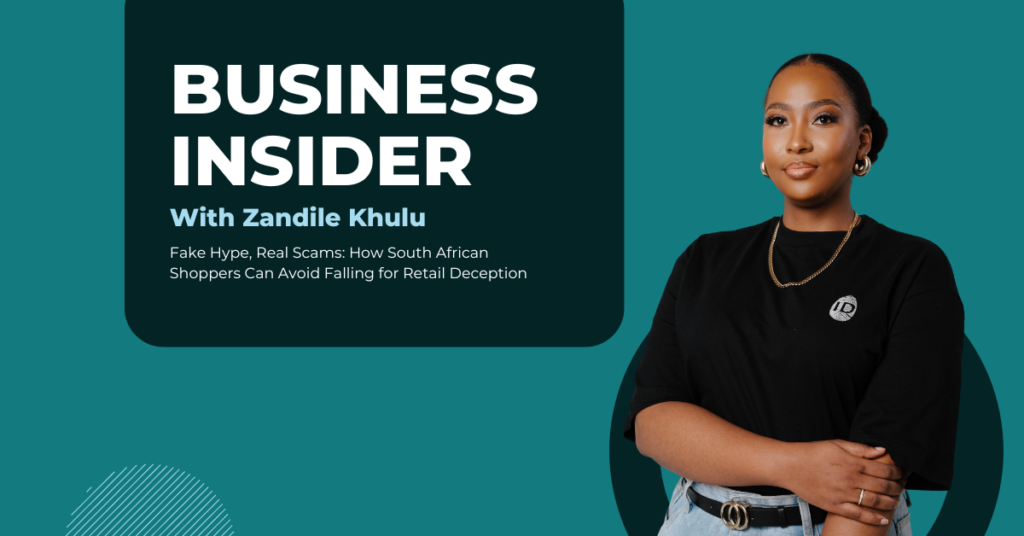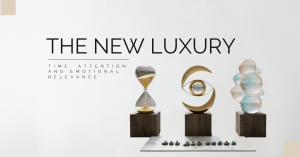In an era where social media buzz equals credibility, South African consumers are increasingly falling victim to polished illusions: grand openings that never materialise, high-profile endorsements masking shaky foundations, to events promising Beyoncé but delivering your cousin’s Spotify playlist – ads included.
If you’ve ever stood in a snaking line for a hyped-up launch event only to find out it was all smoke and mirrors, you’re not alone. South Africa’s retail and lifestyle landscape has seen a fair share of eyebrow-raising stunts—from misleading brand collabs to full-blown scammy events. While some leave us laughing, others leave our wallets crying.
Let’s unpack what’s really going on and, more importantly, how not to get played.
The Illusion of Legitimacy
Scams are getting smarter and shinier, they’re no longer back-alley deals. They’re popping up in malls, on your favourite influencers’ feeds, and on event flyers that look like mini Marvel posters.
One glaring example is the Mall of Africa x Rhode debacle. When a pop-up claiming to represent Hailey Bieber’s skincare line launched at a major mall, fans flocked in — only to discover that it had no official ties to the brand. The event leveraged name recognition and influencer culture to generate foot traffic and buzz, without actual legitimacy, leading consumers to find the pop-up suspiciously vanished just after the launch.
Similarly, the Tammy Taylor Nails franchise saga revealed how easily glamorised branding and name recognition can mask internal chaos. Dozens of hopeful entrepreneurs invested in what they believed was a premium beauty brand, with promises of U.S. connections and celebrity gloss — only to discover lawsuits, questionable contracts, and a whole lot of confusion. Many investors were left with more regrets than returns.
And then there’s the string of failed festivals: “luxury picnics” with plastic plates, concerts with no artists, and sold-out events that somehow… never happen? Consumers are lured by sleek promo videos and the promise of prestigious international music acts, only to be met with poor organisation or complete event no-shows – ghosting fans harder than your December fling in January. No refunds. No shows. Just vibes.
How Scammers Win Consumer Trust
These deceptive schemes often rely on three key tactics:
- Hype Before Substance – Creating FOMO through perfect Instagram grids, fake influencer endorsements, and bots boosting comments, media coverage, and limited-edition claims before providing tangible proof of product or service quality.
- Association with Recognisable Names – Dropping big brand names or celeb associations (often unauthorised or overstated) to build trust.
- Low Transparency – Vague ownership structures, hidden terms, and little to no public-facing accountability channels.
This creates a perfect storm for consumers who trust the visuals and the vibe rather than the verified details.
What Consumers Can Do to Stay Smart
Staying informed and skeptical is no longer optional — it’s necessary. Here are 5 practical ways shoppers can protect themselves:
- Research Beyond the Hype
Look up the brand’s official channels (website, verified social media). Does the brand itself promote the event or store? A lack of confirmation from official sources is a red flag. - Check for Business Registration and Reviews
Check for business registration, franchise disclosures, and licensing info. Platforms like CIPC and HelloPeter can provide helpful clues on legitimacy and past consumer experiences. - Trust but Verify Influencer Endorsements
Just because an influencer shares it doesn’t mean it’s verified. Influencers can be misled too — or paid to post without proper vetting. - Ask Questions Publicly
Ask organizers or retailers about terms, affiliations, and refunds in the comments. Watch how they respond. A reputable brand will never deflect. - Report and Spread Awareness
If you’ve been scammed or misled, share your experience on community groups, X (Twitter), Facebook forums and the like. The more informed the community, the harder it becomes for scams to thrive.
South Africa’s retail and event culture is vibrant, dynamic, and full of promise — but we need to foster a culture of transparency and accountability. Brands must earn consumer trust, not manipulate it. And consumers must feel empowered to question and verify, not shamed for being cautious.
Let’s hype responsibly. Let’s shop smart. And most importantly, let’s hold each other accountable.




